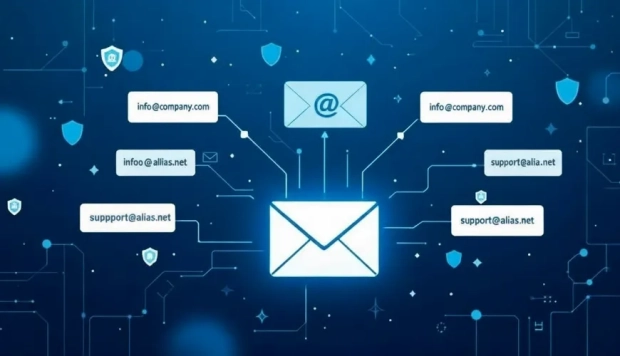What Are Do Not Reply Emails?

What Are "Do Not Reply" Emails?
Have you ever gotten an email from a business that ends with "Do not reply to this email"? That's a "do not reply" email. These messages are sent from an address that doesn't accept incoming emails. It might seem like a good idea for businesses to manage their inboxes, but there's more to it.
Why Businesses Use "Do Not Reply" Emails?
Businesses use "do not reply" emails for a few reasons:
- To send out information they think doesn't need a response, like receipts or notifications.
- To avoid getting swamped with too many responses in their main email inbox.
The Impact on Your Business
When you use "do not reply" emails, you might think you're streamlining your communication by cutting down on unnecessary responses. However, this approach can backfire, affecting your business more negatively than you might anticipate.
For starters, it can create a barrier between you and your customers, making them feel disconnected and unvalued. When customers receive a "do not reply" message, it sends a signal that their feedback or inquiries aren't important, potentially driving them away to competitors who are more open to dialogue.
Additionally, this practice can obscure valuable insights and feedback that customers might share in response to your emails, robbing you of the opportunity to improve your services or products based on direct customer input.
Bad for Deliverability
Relying on "do not reply" emails can negatively impact your email deliverability rates over time.
Email providers and spam filters are becoming increasingly sophisticated, often penalizing senders who do not engage in two-way communication. These systems may interpret "do not reply" emails as a lack of engagement or even as spam-like behavior, leading to a higher chance of your emails being directed to the spam folder or blocked entirely. This not only reduces the effectiveness of your email campaigns but can also tarnish your sender reputation, making it harder for your emails to reach inboxes even when they are important or solicited by the customer.
Leads to Poor Customer Experience
When customers receive a "do not reply" email, they might feel like they're hitting a brick wall if they have questions or need further assistance. This one-way communication sends a message that their input isn't valued, which can leave a sour taste. Imagine a customer wants to thank you for a great product or ask a question about their order, but their reply just goes into the void. This can quickly turn a positive experience with your brand into a frustrating one, diminishing customer satisfaction and loyalty.
Moreover, in today's customer-centered market, businesses thrive on building strong relationships with their customers. "Do not reply" emails undermine this effort by closing off an essential channel of communication. Customers expect to engage with businesses on a more personal level, seeking quick and easy ways to get in touch. When this expectation isn't met, it not only leads to a poor customer experience but can also discourage them from doing business with you in the future. After all, why would customers stay loyal to a brand that doesn't seem to listen?
Not Compliant
Not allowing customers to reply to your emails, especially to opt out, can land your business in hot water with the law. There are rules in place that protect consumers by giving them the right to say "no more emails, please."
If your "do not reply" email setup stops them from doing that easily, you could be breaking these laws. This doesn't just look bad for your business; it could also lead to legal trouble and fines. It's super important to make sure your emails are friendly not just to your customers, but also to the laws that look out for them.
Blocks Communication
Effective communication is the cornerstone of a thriving business, fostering a dialogue between you and your customers. However, when businesses use "do not reply" emails, they inadvertently slam the door on this vital interaction.
This barrier prevents customers from voicing their valuable feedback or asking critical questions, potentially leading to misunderstandings or dissatisfaction. By cutting off this line of communication, businesses risk losing the insights and engagement that could drive their services and products forward, highlighting the importance of keeping communication channels open for a healthy customer relationship.
Alternatives to Consider
So, what can you do instead of "do not reply" emails? Here are some ideas:
- Set up a dedicated email address for customer replies, like "feedback@yourcompany.com".
- Use email filters and labels to manage incoming messages better.
- Include a clear way for customers to opt-out or manage their email preferences.
Why Email Verification Matters
Making sure an email address is correct before sending a message is crucial, and that's where email verification steps in. This process confirms whether an email is valid and capable of receiving messages, serving three important purposes.
First, it cuts down on bounce rates by ensuring emails don't get sent back. Second, it boosts engagement by increasing the chances that emails will be opened and interacted with. Lastly, it safeguards your reputation as a sender because sending to too many invalid emails can tarnish your image and increase the likelihood of your emails being flagged as spam. In essence, email verification helps maintain the health and effectiveness of your email campaigns.
"Do not reply" emails might look like an easy fix, but they can harm your business in many ways. They can hurt your email deliverability, lead to a bad customer experience, and even get you in trouble with email laws. By finding alternatives and making sure to verify email addresses before sending, you can keep your communication lines open and build better relationships with your customers. Always remember, good communication is at the heart of every successful business.




